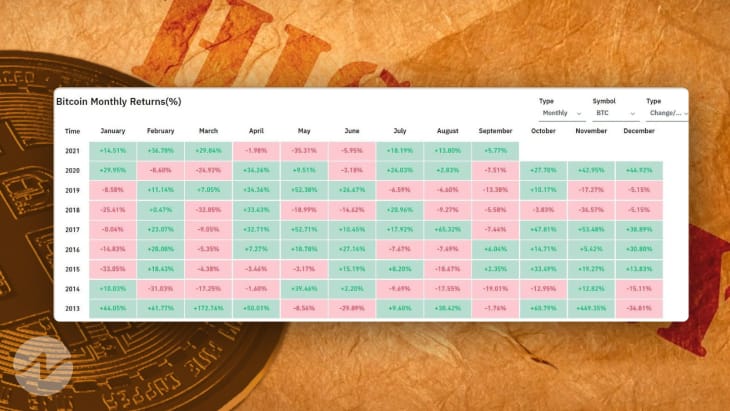- Over the last two years, previous death crosses have been nullified by Bitcoin.
- Bitcoin had a rocky ride during the last two months.
BTC established a pattern on January 8 that conventional chartists are keeping an eye on for its capacity to predict additional losses. A so-called “death cross” was formed when the cryptocurrency’s 50-day exponential moving average (EMA) dipped below its 200-day EMA. Bitcoin had a rocky ride during the last two months, losing more than 40% of its value.
Over the last two years, previous death crosses have been nullified by Bitcoin. When the BTC price fell from approximately $9,000 to below $4,000, a bearish 50-200-day EMA crossover formed in March 2020, but it turned out to be more trailing than predictive. As a result, it had no impact on Bitcoin’s expected to rise to roughly $29,000 by 2020.
Historical Analysis
The @the_verdent Twitter handle also released historical information on monthly Bitcoin returns. As seen by the graphs, January is typically bearish when December and November have been bearish. On the other hand, much of February seems optimistic under these conditions. Take a look at this:
Historical data of #BTC monthly returns. January has been historically bearish mostly when December and November have been bearish, However February seems to be Bullish most of the time. #cryptocrash #Bitcoin pic.twitter.com/NkDa62mEO9
— The Verdent (@the_verdent) January 8, 2022
Like the death cross that showed on the Bitcoin daily charts in March 2020, this one occurred in July 2021; however, it was less predictive and more lagging than the earlier one. It didn’t cause a massive selloff because of its occurrence. For the time being, however, BTC’s price was just stable until rising to $69,000 in November 2021.
In March 2020, the US Federal Reserve revealed its lax monetary policies to mitigate the effects of the coronavirus pandemic-driven stock market meltdown, which led to a rapid rise in the value of Bitcoin.








